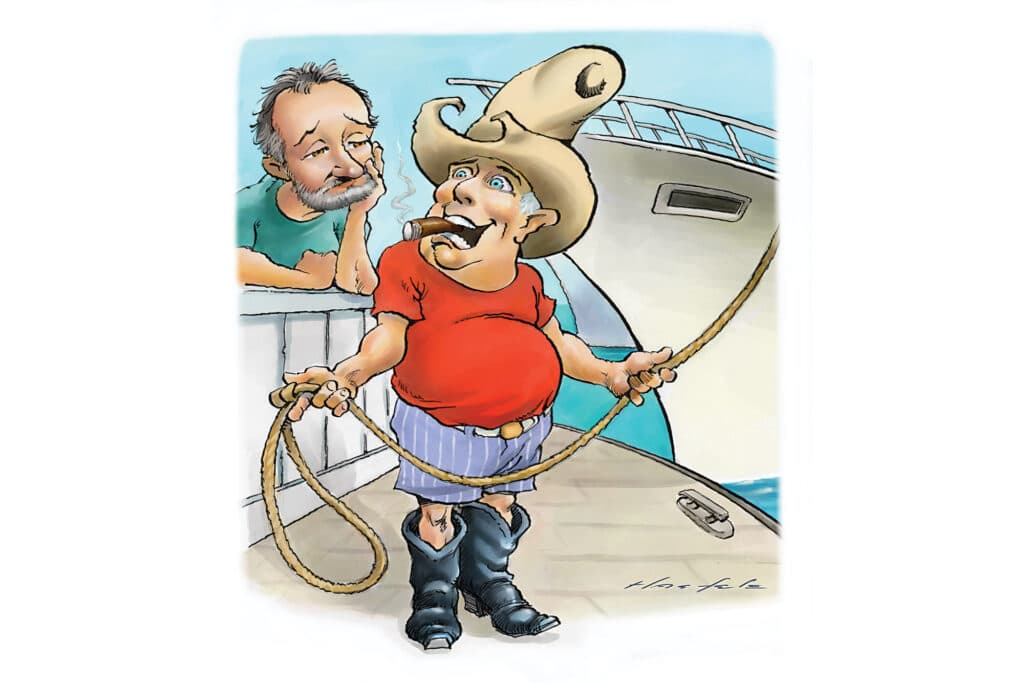
My pal Hal has a new neighbor. A lot of us here in South Florida do. People have filtered down to the bottom of the sock for years, but this year, it’s been a bumper crop. These shorebound newcomers are easy to spot. They brave the roadways in golf carts, providing blurry targets for those who came before them. Some, like Hal’s new neighbor, take to the water.
This particular fellow washed ashore from a dried-up state in the Southwest. His new waterfront palace next door to Hal came with a dock, so a boat seemed to be a logical accessory.
Location is everything; he was fortunate to meet Hal across the fence and mention his interest in the water. Hal is a veteran of the marine industry and has owned at least 50 boats. “Coyle, I’m trying to help the guy, but he just won’t listen,” Hal grumbled.
A few years back, I had the same experience with a new neighbor who had emigrated from a home on the range. We exchanged names across the fence. “You’re Jay Coyle, Yachting magazine. I’ve followed you for years,” he gushed before explaining he’d always dreamed of parking a fishing boat behind a house in Florida. He had the house, and now all he needed was the boat. I recall recommending that he start off small with a 25-foot center-console.
A month later, I heard a commotion in the backyard and spotted my new neighbor attempting to lasso his dock from his new 40-foot convertible. My recommendation had been simple math. The more length overall, the less time it takes for a new recruit to realize the pastime is draining his wallet. A center-console would’ve been the perfect gateway drug, but my neighbor ignored me.
Read More from Jay Coyle: Tell Tales
I’m used to it. As a boat designer, I discovered that successful folks who accumulate enough coin to take to the water typically aren’t great listeners.
Developers, for example, often treat designers like subcontractors: You’re simply executing a task they’d do themselves if they weren’t so busy noodling with cost-saving workarounds. Executive types have new ideas that a designer could never imagine, and they can be impatient in terms of enthusiastic responses and results. Doctors and pilots are often the least likely to listen. This seems understandable, given that the risk of boat design pales in comparison to removing organs or keeping hundreds of people aloft. Lawyers, no offense—my defense was to avoid them.
My pal Hal tells me he’s had the same experience. He claims that social media has made the situation worse: “Clients come to me with their minds made up based on the advice of self-appointed internet experts who have no idea what they’re talking about.”
My neighbor got the hang of boathandling and baiting hooks, but he unfortunately made the mistake of calculating the cost of a mahi-mahi dinner and sold the boat. A few hurricanes later, he moved inland to skipper a golf cart and dodge tornadoes.
His replacement has yet to seek my advice. If he does, I think I’ll just give him this column.









